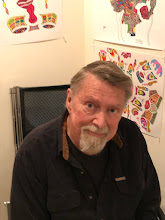.
We went to a birthday party the other day. A young friend was turning 40. It was a lovely gathering, and one of those days for which folks move South. The air was soft, daffodils nodded sleepily, and trees covered with white and pink blossoms perfumed the air and cascaded petals with every passing breeze. The guests were a mixed lot, generationally speaking. We were not the only couple beyond 60, and there were a number of thirty-somethings with toddlers in tow; older children in their late teens and early 20s amused their younger siblings. I knew enough about the crowd to know that the photographs being snapped were going to end up on online. “Interesting crew,” I thought. “Young enough to Facebook, and old enough to think about it.” I taught photography once, at a university long ago and faraway, and have always been fascinated by the effect of cameras on people; on both subject and photographer. As a photographer, I was well acquainted with the camera as shield. Despite being more than a little chary of heights, I could peer fearlessly into the most dizzying abyss – as long as I did it through a camera’s viewfinder. Strange, not? More interesting though, is the effect of cameras on the people before the lens.
The one photographic affinity I can claim with the iconic Ansel Adams is that we both married women who hated to be photographed. Far more common is the urge to be seen, and seen in a particular way. Pointing a camera at a group of kids is a transformative act. They pose, they smile coyly, they smirk, they fain the total disinterest of the Gap kids they see in the magazines and store windows. In short, they present to the lens the version of themselves they wish to be made public; they perform.
My undergraduate degree is in Theater, and for the first couple of decades of my life my plan was to become God’s gift to the American stage. God, apparently, had not been informed. I did, however, learn a great deal about the nature of performance. I had the good fortune, while studying at Kalamazoo College, to be directed by visiting artist Karl Malden, who had trained under Lee Strasburg at The Group Theater in New York. Malden, who won the Oscar for Best Supporting Actor in Streetcar Named Desire, taught us that performing meant, in part, filling the theater with your character’s personality. You had to "be" the role so completely that you radiated the character’s essence with such intensity that you “spoke” to the back of the house even while silent. It is emotionally, psychically and physically exhausting. And if you do it long enough, it is not difficult to lose track of where the self stops and a character begins. There are real personal risks to a life spent in performance. Ask Charlie Sheen.
So, I found myself musing as I looked around the sunny birthday scene, how does a life change when you expect every moment to be captured, chronicled and Facebooked? What is the nature of a life lived before a lens? What is the result of perpetual performance? Does “who we become” change when more people know us via a “performed existence” in social media than know us as the result of a shared life in the real world?
This is when I am supposed to lay a little wisdom on you, to give you a thoughtful answer to the questions I just posed. I would if I could. Instead, I am afraid I can offer only guesses. My guess is that we put too much stock in photographs these days. We spend too much time recording and distributing events. We should be more focused on living the event than on reporting it.
Does that mean we stop taking photographs? Call for a moratorium on home videos? Of course not. Whether we pay the local 15th century portrait painter, or snap a shot with our 21st century smartphone, we will always try to capture the precious moments of our lives in a way that aids memory when memory begins to fade. And we will want to share those experiences. But I would caution us about watering the wine. You sip the best vintage straight. Perhaps it is the 20th century in me, maybe faint echoes of even earlier times, but I still feel that the most precious memories, the deepest emotions, deserve the honor of, if not privacy, then at least a degree of exclusivity.
You can now “friend” the Pope. “Yo, Pontiff! Wazzup?” I think not. If I have a concern for young people growing up before a lens, "performing" their self even as they construct it, it is that they will lose sight of their precious individuality as they co-mingle it with the other 500 million folks living before the lens. Against the backdrop of a conflagration, the flickering of a single candle seems insignificant. And yet, it is quite lovely.
.

No comments:
Post a Comment